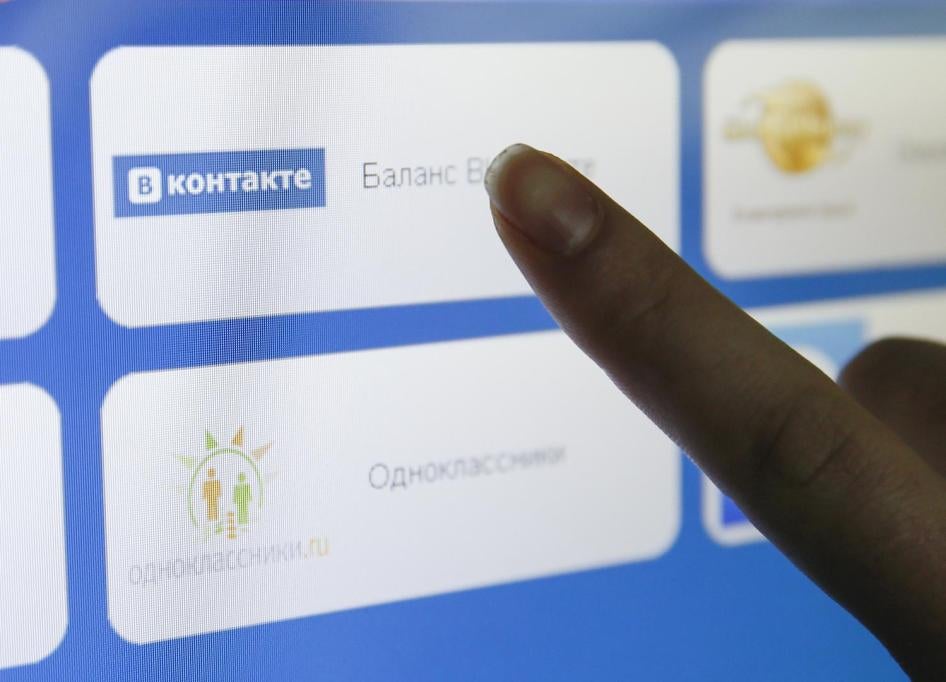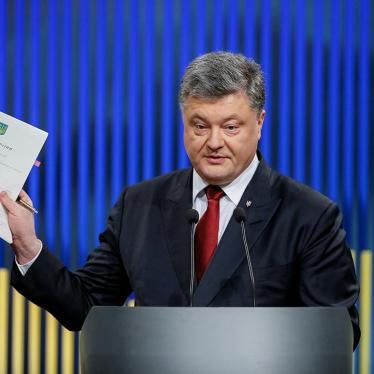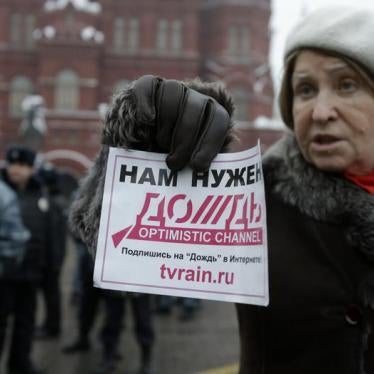(Kyiv) – Ukrainian President Petro Poroshenko on May 15, 2017, signed a decree banning public access to Russian social media platforms, news outlets, and a major search engine widely used in Ukraine, Human Rights Watch said today. Poroshenko should immediately reverse the ban, which affects such internet platforms as VKontakte, Odnoklassniki, RBC, and Yandex, and take steps to protect freedom of expression and information in Ukraine.
“This is yet another example of the ease with which President Poroshenko unjustifiably tries to control public discourse in Ukraine,” said Tanya Cooper, Ukraine researcher at Human Rights Watch. “Poroshenko may try to justify this latest step, but it is a cynical, politically expedient attack on the right to information affecting millions of Ukrainians, and their personal and professional lives.”
Ukrainian internet service providers would be required to block access to internet companies that are on a government sanctions list. The decree includes an appendix with a widely expanded list of individuals and companies under sanction in Ukraine. Experts said it would be hard to enforce.
The decree imposes a ban on access to popular Russian social media networks, such as VK (formerly VKontakte) and Odnoklassniki, both owned by the Mail.Ru Group. Alisher Usmanov, an oligarch with close ties to the Kremlin, owns stakes in the Mail.Ru Group. As of April, 78 percent of all internet users in Ukraine, or around 20 million, had a VK account.
The decree also orders a block on public access to the Russian search engine Yandex and its various services, such as Yandex.Music, Yandex.Money, and dozens of others with .ua and .ru domains. As of March, 48 percent of internet users in Ukraine used Yandex daily.
Various software programs, such as the language processing software ABBYY and accounting software 1C, used by many Ukrainian companies, have also been banned. Other companies affected are the Russian media companies RBC, Ren-TV, TNT, NTV Plus, the 1 Channel, Zvezda, Moscow 24, a Russian state news agency Rossiya Segodnya, and internet security companies Kaspersky Lab and DrWeb. Russian banks, airlines, oil companies, defense industry companies, and Crimean businesses are also affected.
The presidential decree, which enacts a decision by the National Security and Defense Council of Ukraine, was published on May 16, 2017. It is one in a series of measures imposing economic sanctions on individuals and legal entities with ties to the Russian government. Such sanctions include freezing of assets in Ukraine and other economic and financial restrictions; for individuals, it also means a ban on people on the sanctions list entering the country.










